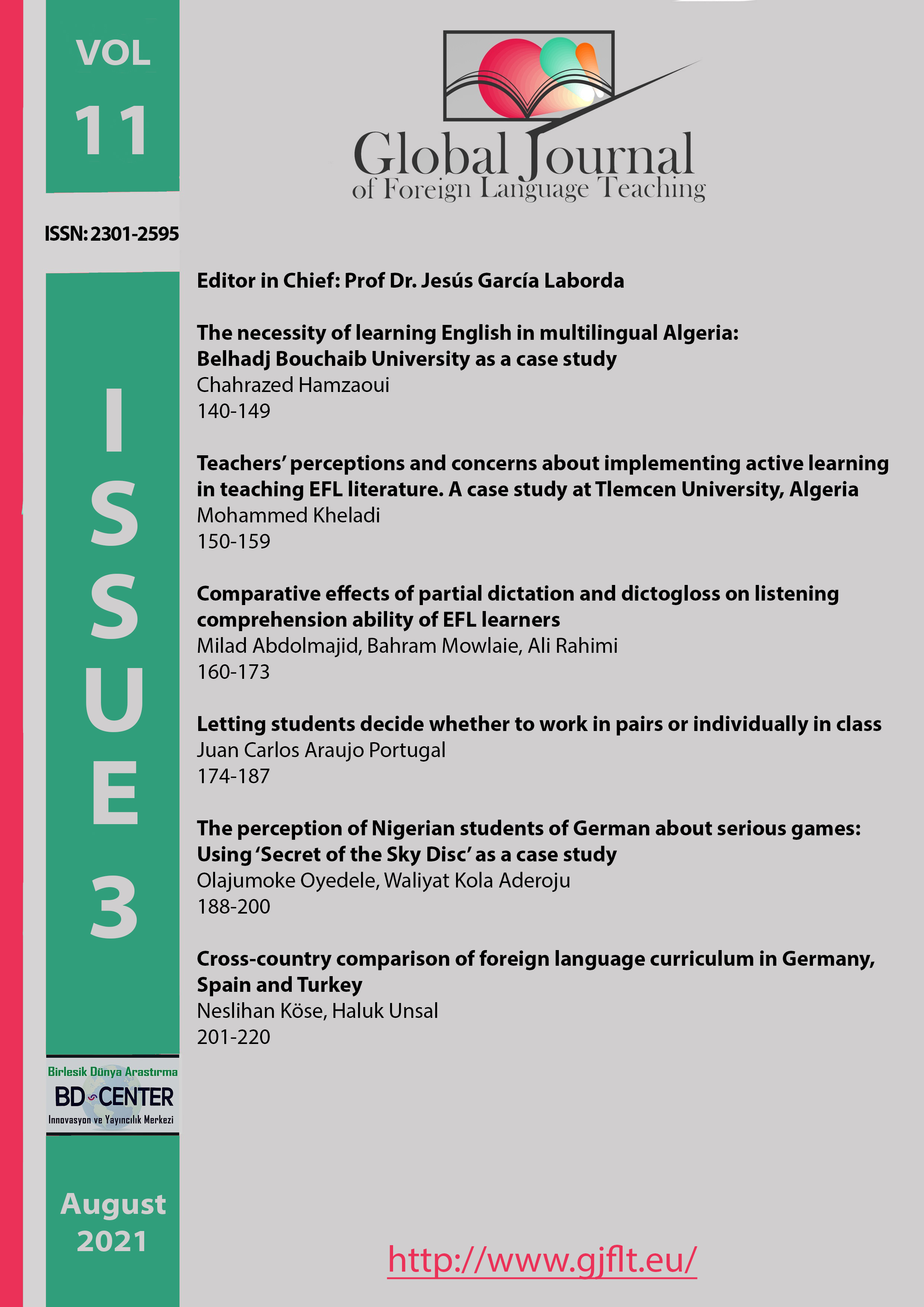Cross-country comparison of foreign language curriculum in Germany, Spain and Turkey
Main Article Content
Abstract
In an ever-increasing global world, foreign language teaching (FLT) has been in the agenda of many countries. The purpose of this study is to compare the FLT curriculum at compulsory education in Germany (Berlin) and Spain (Madrid) with the curriculum in Turkey. Qualitative in nature, the study is designed as a multiple (collective) case study. Maximum variation (heterogeneity) sampling, a purposeful sampling strategy, is used to compare the FLT curriculum in Germany and Spain with Turkey, aiming at capturing and describing common patterns accross a variety of cases. The results show that with the latest revisions in Turkey’s curriculum, the curriculum in three countries are similar to one another in terms of design, main philosophy, content, assessment and evaluation approach, as well as the language teaching approach. This paper concludes that the structural differences depending on the language family could be one of the reasons behind Turkey’s situation in FLT.
Keywords: Comparative education, curriculum, foreign language teaching, primary education, cross-country.
Downloads
Article Details

This work is licensed under a Creative Commons Attribution 4.0 International License.
Authors who publish with this journal agree to the following terms:- Authors retain copyright and grant the journal right of first publication with the work simultaneously licensed under a Creative Commons Attribution License that allows others to share the work with an acknowledgement of the work's authorship and initial publication in this journal.
- Authors are able to enter into separate, additional contractual arrangements for the non-exclusive distribution of the journal's published version of the work (e.g., post it to an institutional repository or publish it in a book), with an acknowledgement of its initial publication in this journal.
- Authors are permitted and encouraged to post their work online (e.g., in institutional repositories or on their website) prior to and during the submission process, as it can lead to productive exchanges, as well as earlier and greater citation of published work (SeeThe Effect of Open Access).
